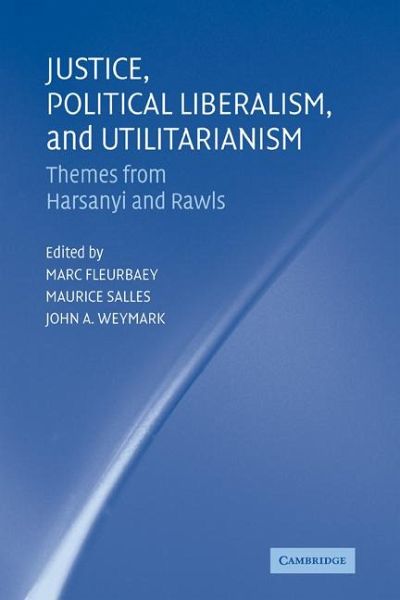
Justice, Political Liberalism, and Utilitarianism
Themes from Harsanyi and Rawls
Herausgeber: Fleurbaey, Marc; Weymark, John A.; Salles, Maurice
Versandkostenfrei!
Versandfertig in 1-2 Wochen
63,99 €
inkl. MwSt.

PAYBACK Punkte
32 °P sammeln!
The utilitarian economist and Nobel Laureate John Harsanyi and the liberal egalitarian philosopher John Rawls were two of the most eminent scholars writing on problems of social justice in the last century. This volume pays tribute to Harsanyi and Rawls by investigating themes that figure prominently in their work. In some cases, the contributors explore issues considered by Harsanyi and Rawls in more depth and from novel perspectives. In others, the contributors use the work of Harsanyi and Rawls as points of departure for pursuing the construction of theories for the evaluation of social jus...
The utilitarian economist and Nobel Laureate John Harsanyi and the liberal egalitarian philosopher John Rawls were two of the most eminent scholars writing on problems of social justice in the last century. This volume pays tribute to Harsanyi and Rawls by investigating themes that figure prominently in their work. In some cases, the contributors explore issues considered by Harsanyi and Rawls in more depth and from novel perspectives. In others, the contributors use the work of Harsanyi and Rawls as points of departure for pursuing the construction of theories for the evaluation of social justice. The introductory essay by the editors provides background information on the relevant economics, game theory, philosophy, and social choice theory, as well as readers' guides to the individual contributions, to make this volume widely accessible to scholars in a wide range of disciplines.




